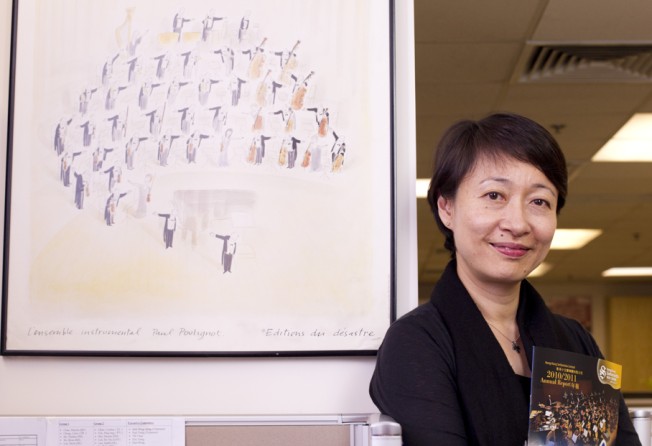
'Big nine' performing arts groups to ignore calls to share government cash
Major arts groups say they will try to get their share of extra funds as there is no mechanism to ensure money would go to smaller groups

Some big, publicly funded performing arts groups will press ahead with bids for extra money put up by the government, despite a call to leave the cash for emerging organisations.
The "big nine" arts groups said that even if they stayed out of the bidding for the HK$30.4 million in additional funds offered by the Home Affairs Bureau, the money would not be funnelled to smaller ones.
They added that the lack of a cultural policy with clearly defined goals and strategies had given rise to a funding mechanism that could not develop local arts and culture.

The Hong Kong Repertory Theatre and the Chung Ying Theatre Company both said they would bid for a share of the money, while the Hong Kong Sinfonietta has yet to decide.
Experimental theatre group Zuni Icosahedron - one of the nine - called on the government on Monday to direct the funds to smaller groups. It said it would not bid for a share.
For the year 2013-14, the total amount of financial provision for the major performing arts groups was about HK$304 million, including HK$13.5 million earmarked for new projects.
Medium-sized groups and projects get HK$33.8 million under the Arts Capacity Development Funding Scheme, while small groups share HK$40 million through the Arts Development Council.
Chung Ying general manager Dominic Cheung said his group needed money to retain staff who were jumping ship due to low pay. "We've had West Kowloon arts hub headhunters calling our staff to poach them," Cheung said, noting that six of the 20 staff had quit within a year. Chung Ying received about HK$11 million for the current financial year.
Sinfonietta chief executive Margaret Yang said the group had been staging more than 120 performances a year with musicians on part-time salaries.
The orchestra was granted HK$22.7 million from the government for 2013/14, a third of the amount paid to the Hong Kong Philharmonic, the largest beneficiary of the nine which gets almost HK$68.3 million.
Yang said the group agreed the city needed to top up its total arts and culture budget and invest in local groups. But pulling out of the bidding for the HK$30 million extra funding might not help them.
"If there is a good current mechanism in assessing whether a younger group has potential and would be able to grow with additional funding, then we will be all for sharing any resources there might be to help nurture that younger group," Yang wrote.
"The problem is, even if you give up your share, there is no trustworthy mechanism ensuring the money will reach deserving smaller groups."
Lynn Yau, chief executive of Absolutely Fabulous Theatre Connection, a small group that receives some government support, questioned the logic of the current funding mechanism.
"How does one rationalise all the different funding distribution channels? Where does it all lead us?" said Yau. "We need a cultural policy with aims, strategies, targets and plans."